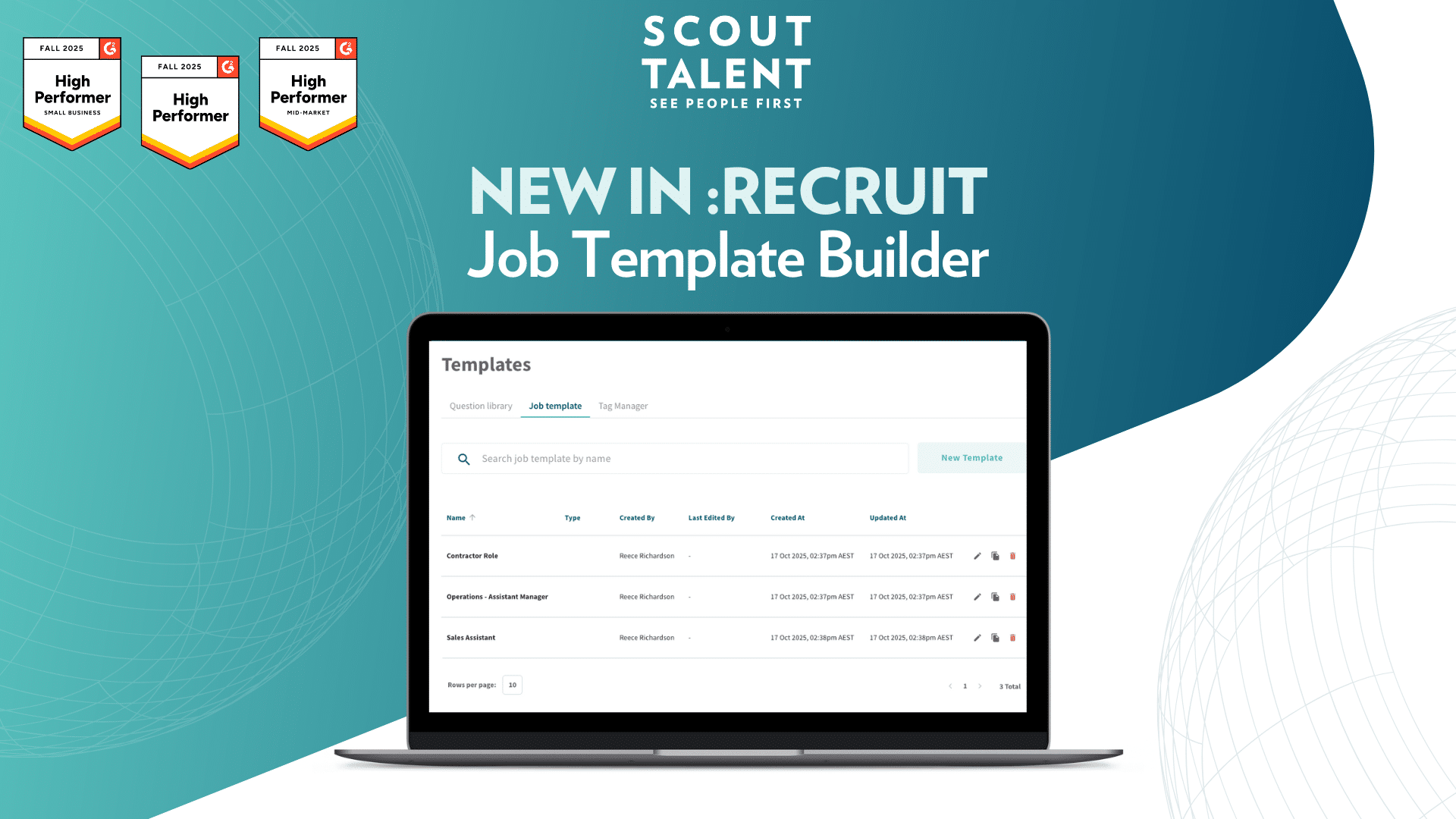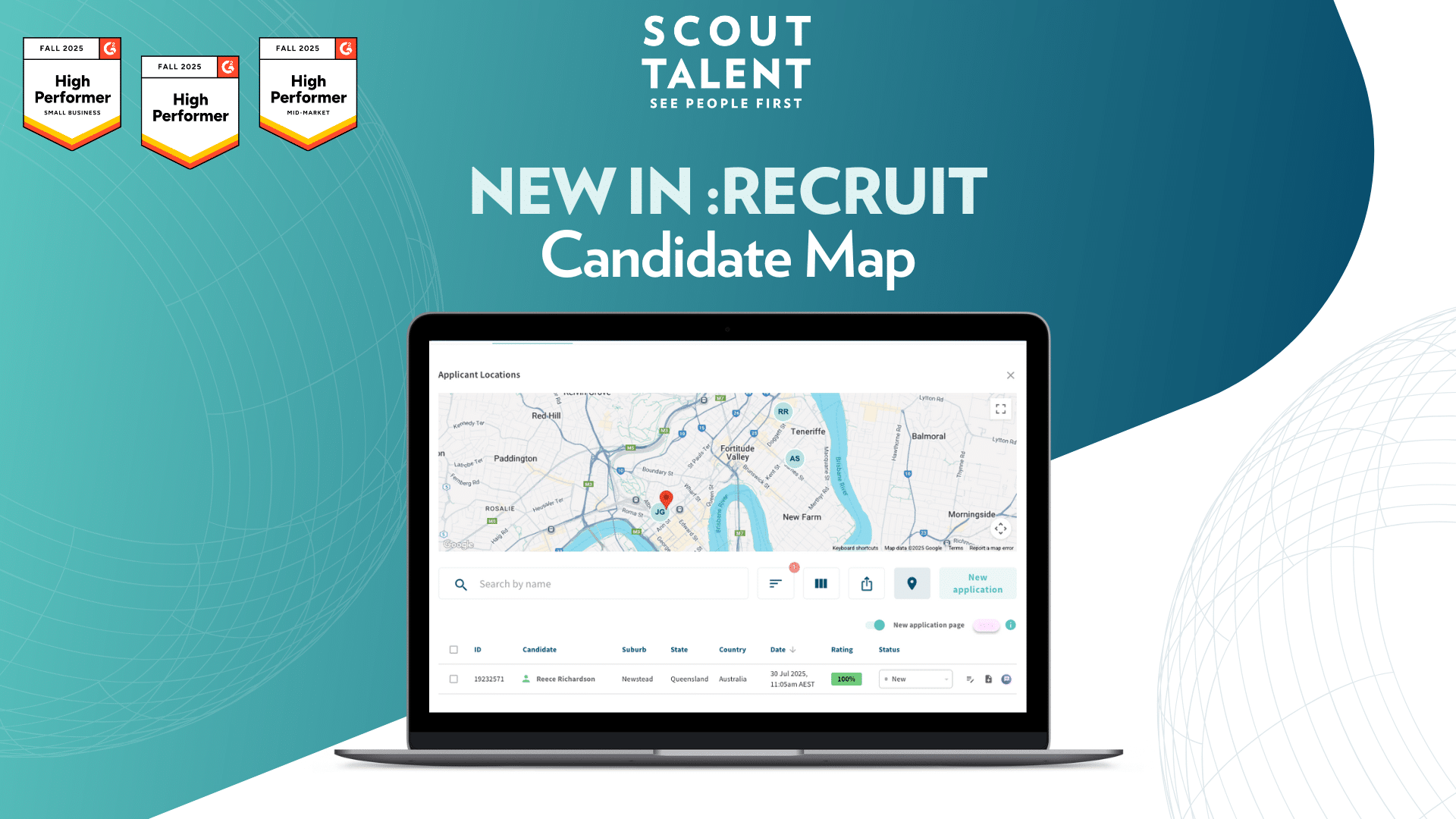This post is written by our Senior Recruitment Marketing Specialist, Shane Keane. It is based on our guide on the same topic that you can download at the bottom of this post.
As we navigate the shifting talent markets of this year one of the biggest challenges facing most recruiters is adapting to the increased volume of candidates they’re receiving. This is causing many of us to waste time as we sift through applications that are not meeting the requirements of the opportunity in order to find the few that are. We’ve talked about using an Applicant Tracking System in previous episodes to help alleviate some of this pressure, and if that’s something you’re interested in learning more about please do listen to some of our older episodes, but today we’re going to talk through best practice approaches to Shortlisting & Selection.
The process
If you’ve spent a lot of time and effort reviewing applications it’s really important to get the most out of those that you are interested in with a strong Shortlisting & Selection process.
Often when we talk to clients about Shortlisting & Selection processes their minds immediately go to a standard interview and they firmly stop there. Without a doubt interviewing plays a fundamental role in evaluating the suitability of candidates but it has to be acknowledged that interviews have their limitations. Their effectiveness is improved when the right questions are asked however there are a number of elements to the appraisal process that an interview can’t measure. Therefore it is extremely important to introduce behavioural and skills testing as well as additional screening steps and observation points. This will in turn enhance your shortlisting process and empower you to make the right decision which will ultimately enable you to avoid having to go back out to the candidate market for this role.
Appraising your candidate
We’ve touched on these before but for a truly effective recruitment process, you should really consider these three levels of appraisal.
- Level 1 also known as “Appears to” refers to appearance, mannerisms, interests, and goals. It has a minimal impact on a candidate’s ability to do a job.
- Level 2 also known as “Can do” refers to knowledge, skills, training, education, and experience. It has a greater impact on a candidate’s ability to do a job.
- Level 3 also known as “Will do” refers to attitude, beliefs, internal motivation, maturity, intelligence, aptitude, and temperament. It has the greatest impact on a candidate’s ability to do a job.
Level 1
Appears to – This level of appraisal is largely discovered during the interview itself. This is because it focuses on the candidate’s appearance, manners, and conversational skills to assess whether they “appear to” be able to perform in the role. This is clearly important but it would be a mistake, one that many people make, to hire solely on this basis. As such it’s important to move past how well your candidate “appears to” suit the role and place greater weight on how well they stack up to levels 2 and 3 of the appraising process. This will give a much better indication of their suitability for the role.
Level 2
Can do – refers to a candidate’s knowledge, skills, training, education, and experience to establish – yes you guessed it – whether they can do the job or not. In order to accurately assess these aspects of your candidate, you’re going to need to conduct a thorough job analysis with all of the relevant stakeholders. This will put all of your stakeholders on the same page and give you clarity and overall a better chance of finding the right candidate.
You’re also going to want to review candidates at this point in written format. Resumes, cover letters, or preferably screening questions are going to give you an idea of how a candidate can do a job and arm you to ask better questions at the interview stage. If you have the capacity to have an initial screening interview this can be a great place to confirm the written details you’ve received and really assess the information the candidate has presented. If not, you can maximize your standard interview by asking similar questions at the beginning. Equally this can be a great point to introduce some testing aimed squarely at assessing the experience, knowledge, and skills that your candidate claims to have. Just don’t spring the test on them, make sure they know upfront it may be part of your recruitment process.
Level 3
Will do – refers to whether a candidate will do the job. This third level appraises a candidates’ attitudes, beliefs, internal motivations, intelligence, aptitudes, temperament, and maturity. This is the most important level to assess as these factors have the greatest impact on how a candidate will perform in the role. It’s also unfortunately the level that is hardest to evaluate as it can’t be assessed during an interview. To avoid hiring someone based on their stellar performance during the interview only to find their attitudes and beliefs don’t align with the organization, it is recommended that you install an additional layer into the recruitment process.
The best way to go about doing this is to conduct some form of testing be it psychometric, personality, or general behavioural testing as well as thorough reference testing. I’ve said it before in our webinars but this section of the recruitment process probably isn’t going to rule anyone out for your role, however, it is likely to make one of your prospective new hires shine just a little bit brighter than the others.
Ultimately, what I’m trying to convey is don’t be fooled by someone who is excellent at interviewing but doesn’t really offer much else to your organization. Be thorough in your evaluation and try to avoid being pressurized into making a hire that hasn’t been fully vetted.
I’m aware that our episode today is a very high-level review of Shortlisting & Selection but if you have further questions or would like a more in-depth discussion of the recruitment challenges you and your organization are facing please do reach out. We here at Scout talent have some incredible recruitment specialists who would be more than happy to assist.
If you’d like to see how Scout Talent’s Shortlisting and Selection Specialists can help you to achieve the recruitment success that you want, please feel free to reach out to us via email at hello@scouttalent.ca or by phone at 1 866 474 3140.
To download our guide to better shortlisting and selection, please fill out the form below:




